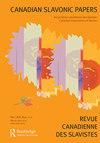Verwaltete Vielfalt: die königlichen Tafelgüter in Polen-Litauen, 1697–1763
IF 1.6
Q2 ETHNIC STUDIES
引用次数: 0
Abstract
While some groups and individuals criticized the Nazi regime, others held back, anxious to prevent another war and keep the lines of communication open with their German counterparts. There was also a refusal in many quarters to acknowledge Christianity’s underlying antisemitism. This spirit of acquiescence is a theme that runs through many of the essays. Many Christian leaders saw antisemitism as antithetical to Christ’s call but were cowed by the growing strength of the Nazi movement and other fascist regimes. Their decision either to compromise or to remain silent made it easier for antisemitism to spread and helped to enable the horrors that followed. This impressive collection of essays adds to our understanding of the interwar period as a prelude to the Holocaust and it reflects exceptional scholarship. However, the diverse range of subjects is both a strength and a weakness of the book. Although it gives readers a broad sense of growing ethnonationalism across many countries, at times its breadth causes the reader to lose the sense of a unifying thread to the volume. In addition, although this is a collection aimed at specialists, a preface with a quick historiographical summary at the start of each essay would have provided valuable context for the reader. This criticism is not meant to take away from this important collection of essays, which adds a welcome dimension to our understanding of antisemitism in the interwar period and provides a challenge for those who believe that religious faith has something positive to contribute to politics and society. Faith is part of individuals’ core identities and helps shape how they engage with the wider world. It cannot be easily set aside. There are examples within this volume of Christianity being a source of inspiration to fight antisemitism. The danger, of course, is that its misuse can transform Christianity’s call of love into the grotesque parody highlighted in this volume.1697—1763年,波兰的王品
虽然一些团体和个人批评纳粹政权,但其他人却有所保留,急于防止另一场战争,并保持与德国同行的沟通渠道畅通。许多地方也拒绝承认基督教潜在的反犹主义。这种默认的精神贯穿了许多文章的主题。许多基督教领袖认为反犹主义与基督的呼召是对立的,但却被纳粹运动和其他法西斯政权日益强大的力量所吓倒。他们要么妥协,要么保持沉默的决定,使反犹主义更容易蔓延,并助长了随后的恐怖。这本令人印象深刻的文集增加了我们对作为大屠杀前奏的两次世界大战之间时期的理解,它反映了非凡的学术成就。然而,主题的多样性既是这本书的优点也是缺点。虽然它让读者对许多国家日益增长的民族主义有了广泛的认识,但有时它的广度会让读者失去全书的统一线索。此外,虽然这是一本针对专家的文集,但每篇文章开头的序言都有一个快速的史学总结,为读者提供了有价值的背景。这种批评并不是要剥夺这本重要的论文集,它为我们理解两次世界大战之间的反犹主义增加了一个受欢迎的维度,并为那些认为宗教信仰对政治和社会有积极贡献的人提供了挑战。信仰是个人核心身份的一部分,有助于塑造他们如何与更广阔的世界交往。它不能被轻易地搁置一边。在这本书中有一些例子,基督教是对抗反犹太主义的灵感来源。当然,它的危险在于,误用它会把基督教对爱的呼吁变成本书中强调的怪诞的拙劣模仿。
本文章由计算机程序翻译,如有差异,请以英文原文为准。
求助全文
约1分钟内获得全文
求助全文

 求助内容:
求助内容: 应助结果提醒方式:
应助结果提醒方式:


